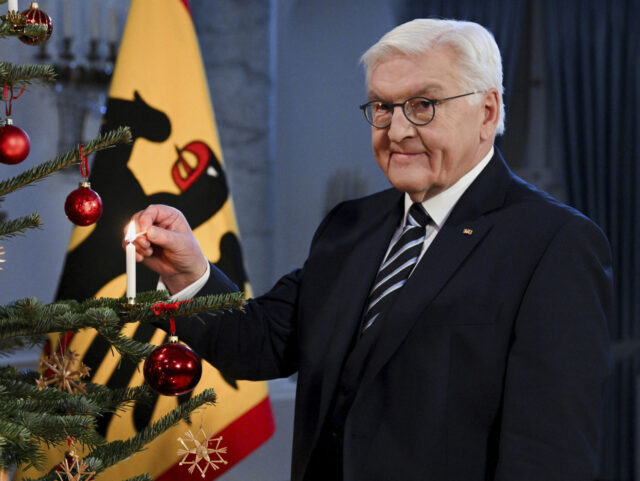Germany will elect a new government seven months early after the last collapsed in acrimony in November, the nation’s President confirmed in dissolving its Bundestag on Friday morning.
It is time for liberal democracy’s “competition of ideas” to find “the best solutions to the challenges of our times” including economic stagnation, mass migration, and wars in Europe and the Middle East, the German President said as he dissolved the Bundestag (Parliament) on Friday morning. President Frank-Walter Steinmeier said the current domestic and global environment required “a government capable of taking action”, and that the present constitution of the Bundestag was preventing this from happening.
The dissolution of the Bundestag today confirms in law the February 23rd date agreed weeks ago between the main parties for the next Federal elections. Since, President Steinmeier had been investigating whether another government could possibly be built out of the Bundestag as it was, but concluded this would not be possible and that early elections were therefore inevitable.
As things stand in national polling, right-wing parties enjoy a commanding lead in the race to replace the outgoing left-green-centrist coalition. Yet a desire to keep right-wing-sovereigntists the Alternative for Germany (AfD) out of power could yet see them frozen out of power by the legacy-establishment right-centrist Christian Democratic Union (CDU), even at the cost of ushering in years more of left-wing government ministries.
Present polling puts the CDU in the low thirties, their best support in years, while the AfD hovers around 20 per cent. While this may be slightly below the AfD’s all-time highs in polling, if realised at the ballot-box it would double their share at the last Bundestag elections in 2021 and make it the second largest party in Germany.
The left-wing SPD and the Greens have both seen their popularity plummet during their time in government and now languish in the mid-teens. The liberal FDP, a junior coalition partner, has fared even worse and is in low single-digits, polling around four per cent all year. This is a serious matter given under the German constitution, a party getting less than five per cent of the national vote can be blocked from getting any elected members at all.
The outgoing German government, now preserved as a ‘caretaker’ administration until the snap elections to decide a new Bundestag come seven months early in February, had collapsed in November over fundamental differences between the coalition parties on spending. Indeed, the end came the day of the election result for President-Elect Donald Trump, and his return was cited at the time as a contributing factor to the coalition government giving up.
As expressed then, an ineffective and bickering German ‘progressive coalition’ of parties struggling to agree on basic matters of policy was seen as hopelessly out of its depth in a world where it could be dominated by a newly invigorated President Trump.

COMMENTS
Please let us know if you're having issues with commenting.